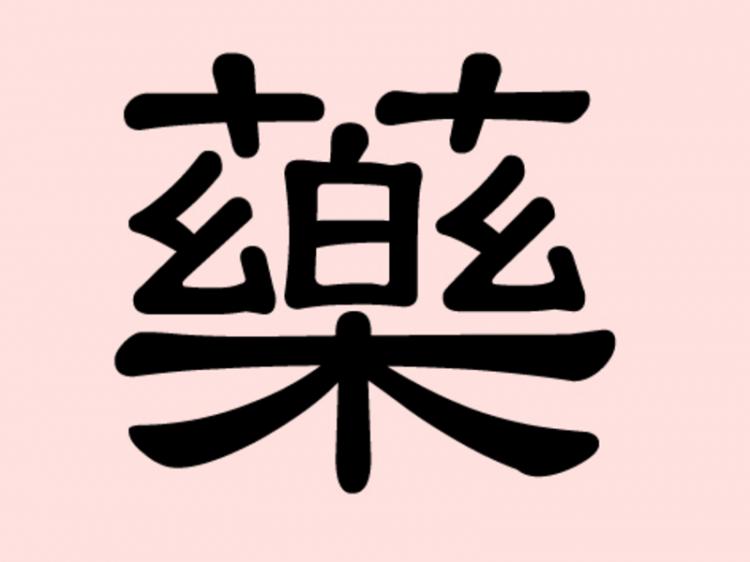The character 藥(yào) in Chinese refers to a medicine or drug. According to mythology, Shénnóng the “divine farmer”, sampled hundreds of herbs to test their medicinal value. After this, herbs 草(căo) were thought able to heal.藥 therefore contains the shortened version of this character, 艹, which means herbs. Shénnóng is said to have taught the Chinese their agricultural practices.
The lower half of the character is 樂 (pronounced either lè or yuè) means, on the one hand, “elation” and “happiness”, on the other hand “music.” In Chinese medicine therefore, besides the extraction of medicine from medicinal herbs, targeted application of music also played a crucial role.
According to Chinese mythology, Huangdi, the Yellow Emperor, was once challenged to a fight by his adversary Chiyou. Following a dream, the Yellow Emperor eventually used cow-skin drums to conquer his foe and his iron and bronze artillery. Not only did the soldiers of Chiyou pass out by the dozens and die, but the Emperor’s army were themselves close to death. Finally, Huangdi’s music master used a special bow to create lovely music which reached the Emperor’s warriors, and they were given new energy to live.
Since then, Chinese medicine was also characterized by this understanding. The use of music as remedy also shows in 白 (bái), which is in the center of 藥. Though 白 usually means “white,” in this case it refers to a plectrum (like a pick), used to strike or play stringed instruments.







